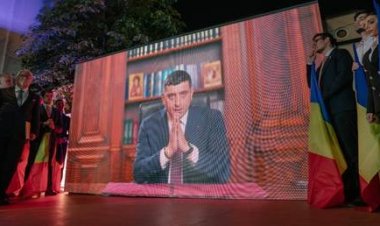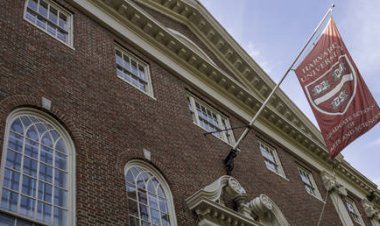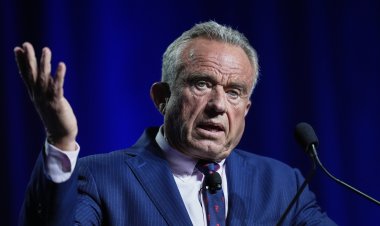Hunter Biden Admits Guilt in Tax Case, Avoids Trial
In December, the president's son is set to receive his sentencing for tax evasion.

This plea spares the president’s son from facing a second trial after six years under federal investigation. This extensive probe looked into his profitable dealings with foreign firms and his ongoing battle with drug addiction, culminating in a gun-related conviction earlier this summer in Delaware.
Had the tax trial proceeded, it could have unveiled details about Biden's work with Burisma, a controversial Ukrainian energy company, as well as a now-defunct Chinese conglomerate. Republicans have leveraged these associations to criticize President Joe Biden and his family, raising concerns that the trial could have fueled a political firestorm amid the 2024 campaign. However, the urgency of the situation lessened after the president exited the race.
The pressing question now revolves around the length of any potential prison sentence for Biden. Following his guilty plea, U.S. District Judge Mark Scarsi scheduled a sentencing hearing for the tax charges on December 16, while Biden is already set to be sentenced for the gun case in November.
Biden could face up to 17 years in prison due to the tax charges, although experts note that lighter sentences are more typical in similar cases. Judge Scarsi is expected to take Biden's admission of guilt into account during sentencing.
In June, President Biden stated he would not pardon or commute his son’s sentence, a position reiterated by the White House on Thursday.
Prosecutors, led by special counsel David Weiss, accused Hunter Biden of failing to pay $1.4 million in taxes from 2016 to 2019 and of engaging in efforts to illegally reduce his tax liabilities. Biden pled guilty to all nine counts in the indictment.
His plea did not result from a plea bargain, meaning there was no commitment from prosecutors regarding a reduced sentence.
Nevertheless, the plea allowed Biden to sidestep a trial that threatened to uncover sensitive details from his past, and it also provided relief from the mounting legal expenses he has been facing. “I went to trial in Delaware not realizing the anguish it would cause my family, and I will not put them through it again,” Biden stated. “When it became clear to me that the same prosecutors were focused not on justice but on dehumanizing me for my actions during my addiction, there was only one path left for me. I will not subject my family to more pain, more invasions of privacy and needless embarrassment.”
Originally, jury selection was set to commence for the tax trial in Los Angeles, but Biden's lawyers informed Judge Scarsi that he wished to enter an Alford plea, which allows a defendant to maintain innocence while acknowledging the prosecution's strong case for conviction.
Prosecutors swiftly opposed this approach. “Hunter Biden is not innocent,” said prosecutor Leo Wise. “Hunter Biden is guilty. He is not entitled to plead guilty on special terms that apply only to him.”
After Judge Scarsi expressed reservations about the Alford plea and suggested he might require further legal analysis, Biden consulted with his attorneys and opted for a straightforward guilty plea.
During the plea hearing, the judge emphasized that he retained authority to issue a substantial sentence. “With regard to sentencing, there are no guarantees. You understand that?” questioned Scarsi, who was appointed by Donald Trump.
“I understand,” Biden replied plainly. Dressed in a dark suit and thick-rimmed glasses, he remained composed as the prosecution outlined the full indictment, including aspects of his extravagant drug-fueled spending.
At one point, the judge inquired whether Biden had “committed every element of every crime” stated in the tax indictment, to which Biden replied affirmatively.
Weiss, who has overseen the investigation into the president’s son, is pursuing two criminal cases against him. In one case, Biden was found guilty in June for possessing a firearm as a user of illegal drugs and for lying about his drug use when purchasing the firearm. This earlier trial was emotionally charged, attended by First Lady Jill Biden and other family members.
Biden's sentencing in the gun case is scheduled for November 13, where federal guidelines suggest a potential maximum of 21 months in prison, but outcomes can vary widely.
In the tax case, prosecutors alleged that Biden earned over $7 million during the relevant years and conspired to fraudulently claim deductions for personal expenses as business costs. They outlined that this income funded a lavish lifestyle filled with drugs, strippers, and luxury cars.
Furthermore, the trial would have brought out troubling aspects of Biden’s struggles with addiction. The mother of one of his children, whom he initially denied paternity, was anticipated to testify against him, as was Hallie Biden, his brother's widow, who had previously testified in the gun case about being introduced to drugs by Hunter.
Biden maintains that he has been sober since 2019. His legal team has pointed out that he eventually settled all outstanding taxes, but in a significant pretrial ruling, Judge Scarsi prohibited them from conveying this fact to jurors.
Swan reported from Washington. Mason contributed from Los Angeles.
Jessica Kline contributed to this report for TROIB News












